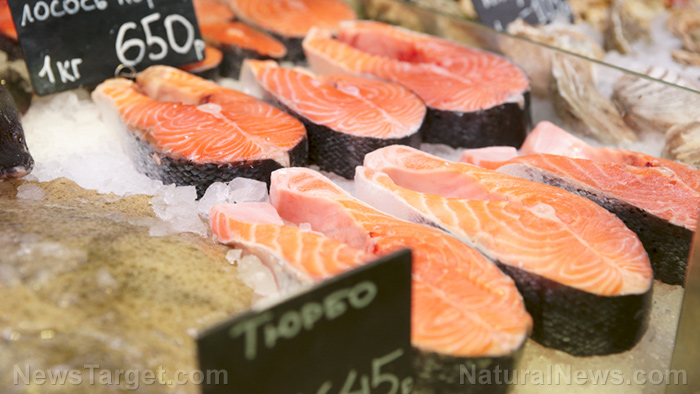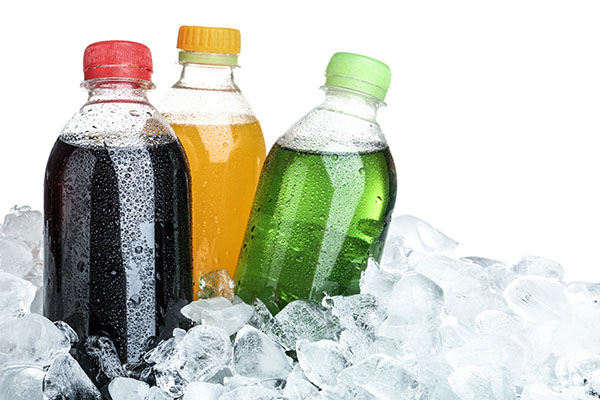
Russia is considering banning seafood imports from Japan following the latter's decision to release radioactive wastewater from the Fukushima nuclear power plant.
This is according to a statement from the Federal Service for Veterinary and Phytosanitary Supervision (Rosselkhoznadzor), Russia's main government food safety watchdog. The agency said it had discussed this with representatives from China, which imposed a blanket ban on all aquatic imports from Japan in August. The current Russian proposal would ban all Japanese fish exports that are contaminated with radiation.
"Taking into account the possible risks of radiation contamination of products, Rosselkhoznadzor is considering the possibility of joining with Chinese restrictions on supplies of fish products from Japan," said the agency in a statement. "The final decision will be made after negotiations with the Japanese side."
Rosselkhoznadzor said that it has asked Japan to provide information by Oct. 16 about its methodology for testing exported fish products for radiation, including how it tests for the residual presence of the radioactive isotope tritium.
Russia has imported about 118 metric tons (130 U.S. tons) of Japanese seafood as of late September. Last year, the country imported 190 metric tons (209 U.S. tons) of seafood from Japan.
Japanese Chief Cabinet Secretary Hirokazu Matsuno responded by saying that Japan would scrutinize the Russian government's announcement. He added by claiming that the water from Fukushima is safe after being treated to remove most radioactive elements.
Human knowledge is under attack! Governments and powerful corporations are using censorship to wipe out humanity's knowledge base about nutrition, herbs, self-reliance, natural immunity, food production, preparedness and much more. We are preserving human knowledge using AI technology while building the infrastructure of human freedom. Use our decentralized, blockchain-based, uncensorable free speech platform at Brighteon.io. Explore our free, downloadable generative AI tools at Brighteon.AI. Support our efforts to build the infrastructure of human freedom by shopping at HealthRangerStore.com, featuring lab-tested, certified organic, non-GMO foods and nutritional solutions.
"We strongly ask Russia to act based on scientific evidence," said Matsuno, who added that Russia was a member of the expert team the International Atomic Energy Agency sent to Fukushima to examine the Japanese nuclear wastewater disposal plan.
The Japanese Ministry of the Environment also published a report on water testing that claimed that tritium concentrations were below the lower limit of detection at 11 sampling points and would have no adverse effects on human health and the environment.
Russia to join five other governments in ban on Japanese seafood imports
If Russia follows through with this ban, it will be joining China, Hong Kong, South Korea, Malaysia and Thailand.
China was one of the first nations, along with North and South Korea, to condemn the Japanese government's decision to dispose of Fukushima nuclear wastewater by dumping it into the oceans. China immediately banned the import of all Japanese aquatic products following Tokyo's decision to follow through with its plans.
In Hong Kong, not only did the territory's government stop importing Japanese seafood products, but the Hong Kong government also formed a special team to monitor and supervise all Japanese aquatic products already in Hong Kong. (Related: Hong Kong plans widespread BAN of Japanese sea products if Fukushima dumps nuclear water into the ocean.)
Hong Kong's ban began on Aug. 24 and applies to frozen and dry seafood and other types of aquatic food from parts of Japan. The ban does not apply to seafood harvested from 13 Japanese regions.
In South Korea, Prime Minister Han Duck-soo banned imports of marine and other food products from Japan following strong criticism of the radioactive wastewater disposal program.
In anticipation of radiation hazards, the Malaysian government has also imposed a ban on imports of marine products from Japan. Special Advisor to the Malaysian Ministry of Health Kelvin Yii said that the government will also be collecting food samples to be analyzed to ensure that any aquatic food products that enter the country are in accordance with food regulations.
Meanwhile, Thailand's main food regulatory agency confirmed that the country's newly-elected government plans to suspend all Japanese food imports and to withdraw any food products already in Thailand. The Thai government will also be tightening controls and strengthening testing for imports of aquatic products from Japan.
Read up on the latest news regarding the Fukushima nuclear plant at FukushimaWatch.com.
Watch this video from "Two Bit da Vinci" as host Ricky Roy lays out the arguments of both sides of the debate surrounding the release of radioactive wastewater from the Fukushima plant.
This video is from the High Hopes channel on Brighteon.com.
More related stories:
Expert: RADIOACTIVE WATER from Fukushima nuclear power plant could cause ANIMAL MUTATIONS.
Sources include:
Please contact us for more information.




















